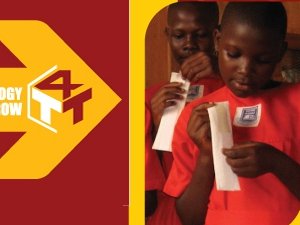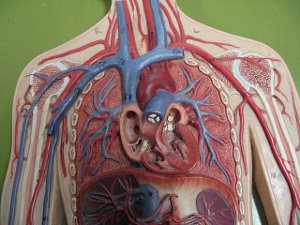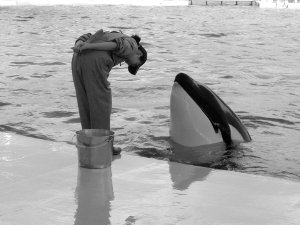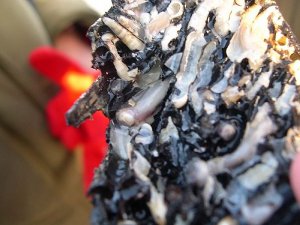 |
 The Recovery ProjectThe Recovery Project would organize people's personal narratives of recovery so that they can be best learned from by others. By letting patients see what others have done and by creating high-level meta-narratives, patients can see the decision trees that others have used, saving time in creating their own from scratch. Sharing and reading similar narratives provides an affective component to possibilities for personal health -- critical when conditions require changes of habit. And experts and practitioners will be able to contribute their stories of helping patients recover, integrating various medical professions' perspectives, instead of creating a divide. by: Michael Nagle | Aug 2, 2010
|
 click for larger image |
CatchMeMobile location-based social networking fitness game. Earn points and rewards by visiting locations and trying activities, for example running past specific locations and visiting new locations to try sports like rafting. Share your experiences with your network and meet new people at the sports locations you visit. Earn points for trying new activities and maintaining consistent exercise patterns, for example swimming every week. Awards are given within your network, for example Daredevil of the Month. Fitness becomes a fun and social game. The game could be expanded to form teams which compete against other teams across the globe. by: Louise Auger and Rachel Jones | Aug 19, 2010
|
 click for web site |
Emotional & Economic Freedom for Women in Africa.Women in developing countries often use banana leaves instead of sanitary pads. In Kenya, 300,000 girls miss up to 5 days of school a month because they are too embarrassed or uncomfortable to attend. Western brands are too expensive and an environmental disaster as they are not biodegradable. Makapads, invented by Professor Moses Musaazi of Makerere Univesity Uganda, are made from locally sourced sustainable papyrus and recycled paper by communities of women they serve. They are biodegradable and cost 70% less than western brands. Makapads provided emotional and economic freedom for the women and support environmental sustainability. by: Clive Pinder | Aug 18, 2010
|
What if your doctor could prescribe you a healthcare app?You could download an application that delivered critical health information to your doctor when they needed it most. Practice Fusion, a free Electronic Medical Record system, has created a platform that allows developers to create applications that are directly connected to their medical chart. Real-time access to health information from remote patient monitoring systems will reduce medical costs, enhance chronic disease management and improve overall quality of care. A cardiologist could view real-time updates from a patient's Bluetooth-connected heart rate monitor in their online medical chart. A psychiatrist could monitor a patient’s mood as they adapt to new medication. by: Matt Douglass | Aug 31, 2010
|
 |
Crowdsourcing the Virtual BodyThe human body is a system of complex interacting systems, each of which can be understood in terms of biochemistry, genetics, or molecular biology. Specialists have deep but fragmented knowledge. Generalists understand high-level interactions among systems but miss the nuances. Therefore, obtaining a complete simulation of human physiology will require many experts across disciplines to contribute working knowledge. An online collaborative modeling tool would make it easy for experts across the world to contribute knowledge. The resultant "virtual body" would allows us to simulate disease and test new treatments quickly and without putting humans at risk. by: Pietro Michelucci | Aug 31, 2010
|
Simple Acts of Healthy Living: The 12@12 Campaign12@12 is a worksite-based demonstration project born from a crowdsourced idea called “Random Acts of Healthy Living.” Here's the premise: Almost everyone eats lunch and is at their workplace at noon. Our project encourages 12 minutes of activity at 12 o'clock once, twice or five times weekly. The employees choose: walk, stretch, stairclimb or simply breathe (relax). This campaign allows people to be active, feel better and build a community. Employees who’ve been active for 12 minutes at least once a week for 12 weeks, earn 12 minutes extra off for lunch daily…for 12 weeks…and the cycle repeats. by: Carol Harnett et al | Aug 31, 2010
|
 |
MSRA KillerThere are two problems with antibiotics: 1)they attack good and bad bacteria indiscriminately, and 2)bacteria are becoming resistant to them. Now imagine a kind of virus that could single out and destroy specific bacteria. Such viruses, called "bacteriophages", occur naturally. But what if we could isolate or create phages that attack only pernicious bacteria, such as MSRA? Eli Lilly began researching phage therapy in the 1940s but abandoned it because antibiotics were easier to develop. Despite this, the Soviets used phages with success during the World War II. Perhaps it is time to revisit phage therapy using modern techniques. by: Pietro Michelucci | Sep 1, 2010
|
 |
Reducing flu spread by bowingA simple idea: flu and other illness (e.g. diarrhea) can be spread by shaking hands, cheek kissing, and hugging. We should promote bowing as the preferred way of greeting. This avoids spreading bacteria via hand-shaking, hugging, and kissing. If extreme intimacy or respect is needed people can touch their foreheads. by: Eric Durbrow | Jun 24, 2010
|
 |
The Fecanator!Create synthetic bacteria designed to live in the digestive system that converts cellulosic waste (e.g., dietary fiber) into glucose. These bacteria would a] allow us to survive on smaller portions of food and b] reduce human waste. The combination of a] and b] would increase the benefits of foreign food aid to impoverished nations while improving sanitary conditions. (Additional benefit: minimize the frequency of bowel complications in the elderly and other impacted [punny!] populations.) "Blueprints" to the bacteria (possibly multiple) would be released under a Creative Commons Non-Commercial license. (Image, per Creative Commons.) by: Steven Edwards | Jul 14, 2010
|
 click for web site |
Young Cancer Patients develop online-community, University Medical Centre facillitatesRadboud University Nijmegen Medical Centre (RUNMC) helps young people with cancer develop their own communities. RUNMC starts with the development of AYA4 (All information You've Asked For): a unique online community for and by young people with cancer. The University hospital facilitates the technique, support and innovation, but it is the patients themselves who determine the content of the community and start filling. They create themselves a digital place where young people with cancer and their families can meet, exchange essential information, ask questions and share knowledge and feeling. by: Lucien Engelen | Aug 12, 2010
|





